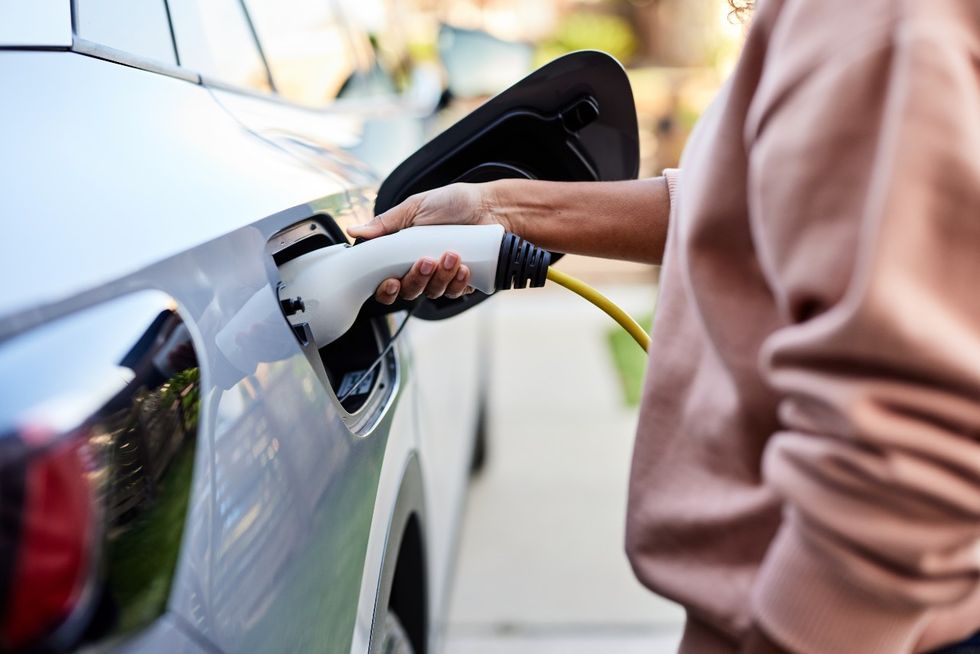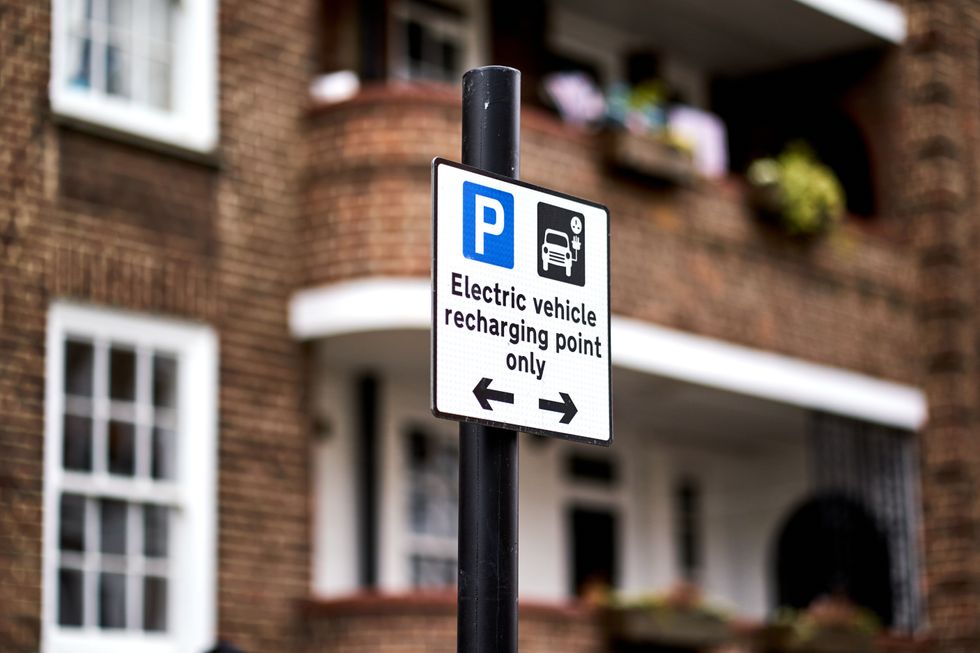Car tax changes allowing more drivers to switch to electric vehicles with lower rates and incentives
Electric vehicles used as company cars have much cheaper tax rates
Don't Miss
Most Read
Trending on GB News
More drivers are switching to electric vehicles through incentive schemes at work as employers offer cheap rates to get them to transition to cleaner modes of transport.
Business financial incentives, known as Benefits-in-Kind (BiK), are seeing more drivers take up an electric car as part of their salary sacrifice scheme than ever before.
Data showed that while demand for salary sacrifice cars grew by nearly half (47 per cent) year-on-year with more drivers getting using EVs through Government incentives.
The research suggested that the right incentives can encourage more motorists to get on board with the Government's net zero strategy and go electric.
Do you have a story you'd like to share? Get in touch by emailingmotoring@gbnews.uk

Current Benefit-in-Kind tax rates are in place until 2028, with calls for greater transparency beyond this date
GETTYToby Poston, director of corporate affairs at the British Vehicle Rental and Leasing Association, said: “It is great to see the BVRLA member lease fleet growing, but this growing imbalance between the business and retail segments – particularly for EVs – is a real concern.
“Benefit-in-kind and salary sacrifice incentives have fast-tracked corporate uptake of electric vehicles and are underpinning our progress towards the ZEV Mandate targets.
“Fleet operators and business drivers cannot bear the weight of the EV transition alone, especially as the Mandate targets ratchet up in future years. The spotlight must turn to the private sector. It needs igniting.”
Benefit-in-kind are goods and services provided to an employee for free or at a reduced costs. While employees benefit from free use of services, such as a company car, they pay tax on the service.
Electric vehicles have the lowest rate of company car tax making them an attractive option for a company car and for employees, with rates starting at two per cent.
From April 2025 onwards, company car tax rates on electric vehicles will increase by one per cent per annum for three years.
In the 2025/26 tax year, the rate for EVs will be three per cent. It will then be four per cent in 2026/27 and five per cent in 2027/28.
However, vehicles which produce CO2, face far harsher tax thresholds with cars producing more than 160g of CO2 per kilometre currently paying a BiK tax rate of 37 per cent.
There have been calls from businesses and drivers for the Government to unveil new targets beyond 2028 to allow them to prepare for the future.
They argue that drivers need certainty to switch to electric vehicles, with this being realised by keeping rates low and imposing large tax rates on more polluting petrol and diesel vehicles.
The leniency for electric cars follows on from the Government's ambitious plans to have 80 per cent of new cars and 70 per cent of new vans sold in the UK be zero emission by 2030, increasing to 100 per cent by 2035.
Rachael Jones, director of automotive finance, Auto Trader, explained: “Encouragingly, we’re seeing robust levels of consumer demand in the market, particularly for used.
LATEST DEVELOPMENTS:
- Drivers can benefit from instant £50 cut to insurance prices as Britons 'feel the impact' of price hikes
- Elderly drivers and Blue Badge holders warned of parking scam at Tesco stores as police issue statement
- Petrol and diesel drivers warned of buying certain fuels from filling stations amid engine damage fears

Electric vehicles attract the lowest rates of BiK tax
PA“In February used cars took an average of 27 days to sell, which was the fastest pace in 12 months, and in March, it’s fallen to just 25, the fastest we’ve ever recorded.”









